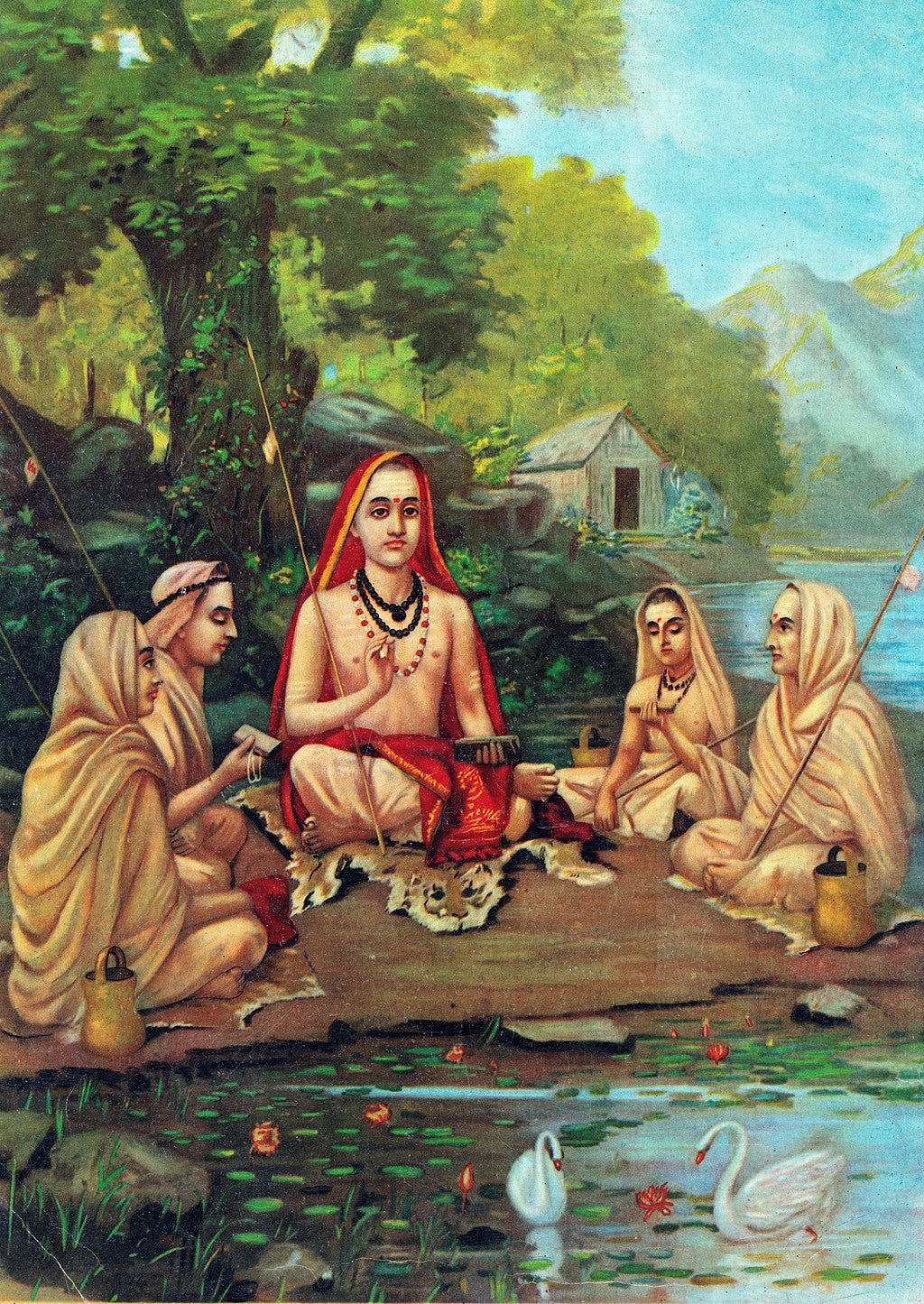Yesterday I listened to the Making Sense podcast with Sam Harris and his guest Kieran Setiya. They discussed Advaita Vedanta—a Hindu concept about ‘nondualism’ or literally translated to ‘non-secondness’.
Advaita Vedanta means that humans are not separate from the world, which is essentially ‘monism’. In Hindu and Buddhist traditions, this oneness is called Brahman (my brother discusses this concept and the Four Noble Truths in his newsletter). Nondualism is contrary to the beliefs of Abrahamic religions which are dualistic, meaning that you are separate from everything else.
As a matter of conscious experience, dualism is untrue. Mindfulness meditation shows us our thoughts are like uncontrollable waves in the ocean. They arise and dissipate. We are not identical to our thoughts. This isn’t quasi-religious or metaphysical about the nature of reality.
As humans driven by our egos, we modulate our experiences by identifying with thought. We think that our thoughts are who we are—that we are identical to them. But you’ll find that by simply noticing thoughts come and go, they aren’t ‘controlled’ by us.
Much of the time we’re constantly thinking about how we’re being perceived, what we want to change, and our ideas about the world such that we obfuscate experience itself. By noticing thoughts rather than identifying with them, the ‘self’ dissolves and what we are left with is the raw, unfiltered experience of conscious awareness. We become identical to experience, or Advaita Vedanta.
It’s like having no head. This is a practice where you replace your head with the world by letting your mind expand like the openness of the sky.
Having no head takes you beyond just being present. It catapults you into the experience that whatever is outside of you, in your view, becomes who you are. You give up your head to become what is out there.
How could this benefit you? One advantage is that you are more with other people. You don’t let your wants and desires get in the way of seeing people as they are. You are actually loving them more because this special attention to them is love. You give more of it to them instead of to yourself.
If you’re interested in exploring Advaita Vedanta, do a deeper dive on the Wikipedia page. You can also try exploring mindfulness meditation to get a glimpse into the fact that the real ‘you’ isn’t the sum of your thoughts.



